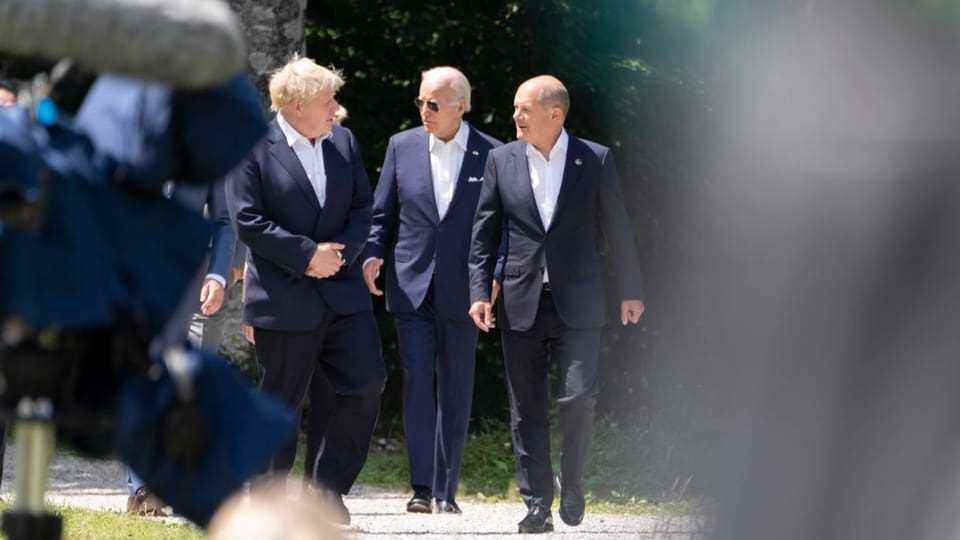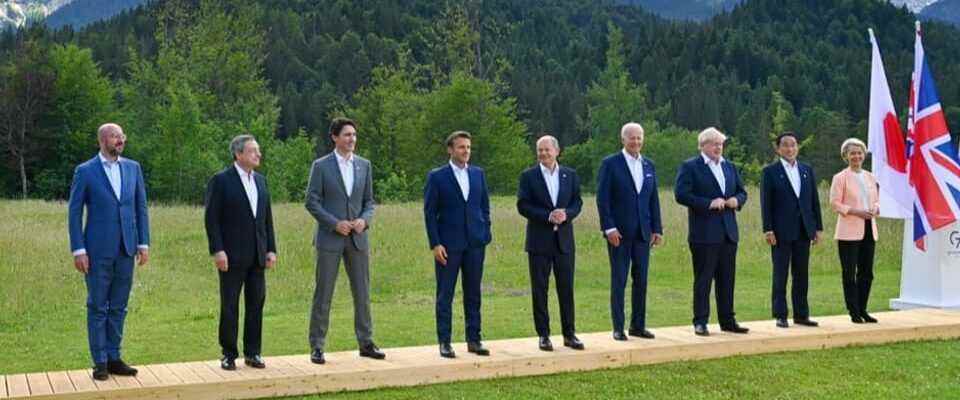contents
The G7 summit shows that the West came together almost overnight after Russia invaded Ukraine. But the longer the war lasts, the more victims it claims, the greater the worldwide consequential damage, the greater the risk of solidarity.
Brass band for the reception of the heads of state and government. And a US President who thinks the Alpine panorama is great. Unfortunately, Joe Biden said he hadn’t been skiing for a long time. Then the cozy part is over. It’s down to business. None is more urgent than Russia’s war on Ukraine. “The West must stick together. Precisely because Russia’s head of state Vladimir Putin hopes that NATO and the G7 will fall out. That hasn’t happened so far – and it shouldn’t happen,” Biden said.
So it takes staying power. Especially since Putin, just in time for the start of the G7 summit, announced that he would equip his vassal Belarus with missiles suitable for nuclear weapons and made it clear with rocket salvos on Kyiv that he would not back down.
The collateral damage increases
The G7 summit participants verbally agree: “Ukraine needs more help – military, economic and political,” as EU Council President Charles Michel said. But the longer the war lasts, the higher not only its human and economic costs.
Legend:
The “G7”, framed by EU Council President Charles Michel (left) and EU Commission President Ursula von der Leyen (right).
imago images
Rather, the collateral damage for the whole world is also growing: rising energy and food prices, supply chain problems, falling growth rates, inflation, debt, neglect of climate goals. “All because Russia started a war,” said Canada’s Prime Minister Justin Trudeau: “These are difficult times – for the whole world.”
Distortions also within the western camp
At the same time, the burden of war and the consequential damage create political upheavals. While Russia by no means appears war-weary and Ukraine cannot afford to be war-weary, it is increasing in those countries that are not directly involved in the war. The pressure on the Ukrainian leadership to capitulate is growing.
Boris Johnson, the British Prime Minister, may emphasize: “It is worth paying a price for freedom because the price of surrender is much higher.” Many in the G7 countries and elsewhere see things differently. And that leads to distortions between western countries and emerging and third world countries – and increasingly also within the western camp. Summit host and Federal Chancellor Olaf Scholz: “In international relations, not everything is sunshine and roses at the moment…” To put it mildly.
Previously unknown accumulation of challenges
Professor John Kirton of the University of Toronto, whose study group has been accompanying the G7 summits for many years, puts it this way: “The G7 heads of state and government have no choice but to deal with all these shocks worldwide. Never before have the G7 faced so many sudden challenges at the same time.”

Legend:
Boris Johnson, Joe Biden and Olaf Scholz: They are all also under political pressure.
imago images
The question is whether they are even capable of doing this. Especially since a number of the seven participants at this meeting are ailing domestically or are under a lot of pressure. At the same time, the political and economic weight of the G7 countries is rapidly dwindling.
While they used to represent almost seventy percent of world gross domestic product, today they represent less than 45 percent. This further narrows the scope for action. There can no longer be any question of a secret world government. No matter how hard they try to appear united.
